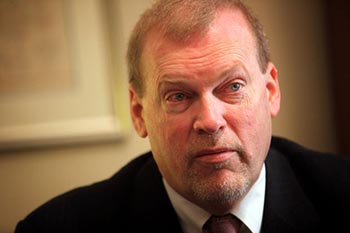The Perseverance of Faith
 In our country, we are very fortunate to recognize each individual’s ability to practice his or her religion, or not practice a religion, as they see fit.
In our country, we are very fortunate to recognize each individual’s ability to practice his or her religion, or not practice a religion, as they see fit.
The current time of year is a period of the utmost importance for many people of faith. Two of the world’s great religions observe holidays which are central to their meaning: Easter in Christianity and Passover in Judaism.
As they did last year, these holidays take place in the shadow of the COVID-19 pandemic that has claimed too many lives. The coronavirus had also disrupted many of the activities of daily life, including religious observances for people of faith. But the dangers of the pandemic, like many other dangers, cannot stifle belief.
The practice of religious belief has overcome worse. Even if we gather with precautions to inhibit the spread of the virus or use tools such as Zoom to meet virtually, we can still connect with fellow believers and express our faith openly. We are still fortunate to live in a country where, as George Washington wrote to the Jewish congregation of Newport in 1790, “All possess alike liberty of conscience and immunities of citizenship.”
That has not always been the case anytime or anywhere. One does not have to look far away or far back to find different circumstances, in which practicing faith openly could be dangerous.
I recently read Graham Greene’s classic novel The Power and the Glory. Although fictional, it is set in a real time and place, 1930s Mexico. At the time, the socialist government running the province of Tabasco was persecuting the Catholic Church – in a country along our borders within living memory.
But Greene’s novel portrays not only persecution of a faith but its power. The protagonist is an unnamed priest fleeing for his life from the authorities. A flawed man and well aware of it, the priest feels guilt and fear but nevertheless performs his duties and attends to the spiritual needs of others. The Power and the Glory shows how faith can transcend limitations, whether our very own or those imposed by a government.
I have told in this column on Easter before a story about the Soviet Communist leader Nikolai Bukharin. As the story goes, in 1930 he traveled to Kiev to speak before a large crowd and vigorously denounced religion. After he finished, he asked if the audience had questions.
In response, a man came to the speaker’s platform and shouted to the crowd in the customary Orthodox way, “Christ is risen!” The crowd answered back, “He is risen indeed!”
The story about Bukharin in Kiev has been told many times, but it may be a legend; no reporting at the time confirms it, although the Communist rulers of the Soviet Union no doubt would not want such a story to be repeated. But decades after the episode with Bukharin reputedly took place, the whole world could see in a Community-ruled country a similar widespread affirmation of faith and rejection of state-imposed atheism.
In 1979, John Paul II had just become the new pope. Formerly Karol Wojtyla of Poland, he made a return visit to his homeland in June. Poland at the time was ruled by Communists aligned with the Soviet Union, and the regime imposed restrictions on worship in accord with its atheistic doctrines.
When he returned, hundreds of thousands of Poles turned out to see him. They were proud of a native son, but they turned out for more than that. As he preached to the crowd, they chanted, “We want God!”
Their faith could not be suppressed by Communist tyranny, and in the end, their faith outlasted Communist tyranny.
These stories show how faith can persevere even amid the harshest circumstances. So, too, do the holidays being observed at this time of year. Passover came out of a time when the Jewish people were in bondage in Egypt, and Easter commemorates the resurrection of Jesus Christ after his trial and crucifixion, overcoming death itself.
For those celebrating like my family and myself, I wish you a happy Easter. For all others, I wish you peace.
If you have questions, concerns, or comments, feel free to contact my office. You can call my Abingdon office at 276-525-1405 or my Christiansburg office at 540-381-5671. To reach my office via email, please visit my website at www.morgangriffith.house.gov. Also on my website is the latest material from my office, including information on votes recently taken on the floor of the House of Representatives.









